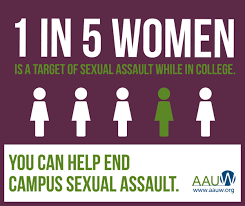Related Posts
Kavanaugh hearings

Christine Blasey Ford (left) and Brett Kavanaugh each were sworn in before giving testimony to the Senate Judiciary Committee on Sept. 27. Getty Images.
So much has been said and written about the special session in the Senate last week that was part of Brett Kavanaugh’s confirmation hearing. It was to be a time during which senators, their staffs and the public would hear from Dr. Christine Blasey Ford about her alleged sexual assault by Kavanaugh when both were in high school. Both would make statements and respond to questions from a seasoned attorney.
Whatever the outcome of Brett Kavanaugh’s nomination to the Supreme Court, I was surprised and disgusted that he lost his composure and temper and stooped to name calling. His behavior that afternoon would not be appropriate in most workplaces, including ours. Dr. Blasey Ford maintained her composure and her respect for everyone in the room. She could not have behaved otherwise without impairing her credibility, and being dismissed as inconsequential.
If they were fortunate, many of the successful women I know were taught early by mentors not to lose their composure. I learned that lesson when I was in my early 20s. It’s OK to cry when we’re moved to tears by the personal story of someone who has experienced pain and hardship, but not when someone insults or challenges us.
In the hearing, Dr. Ford was a model of professionalism and appropriate behavior. Kavanaugh was not. Her story was the harder one to tell on national television with millions of people around the world tuning in. She had nothing to gain and much to lose by telling it. We, the public, as well as the men and women who will vote on Kavanaugh’s nomination, are the ones who benefit from her courage and clarity.
Many of us remember our high school and college experiences and could relate to the story Dr. Ford told. From our own lived experiences, her story was not implausible. Regardless of the particulars, Brett Kavanaugh is not the reasonable jurist we want deciding national issues that will affect people, institutions and the environment decades into the future.
The president’s comments about its being a scary time for young men showed him to be out of touch and served only to bias the process and muddy the conversation. We could say that it is a scary time for young people, without mention of gender, but it is criminal to confuse the situations of those who assault and those who are assaulted. If, by the way, we do want to talk about young men being unfairly condemned, then we should focus on men of color. From Emmett Till to Michael Ferguson, and before and after them, men of color are the ones at greatest risk.
Part of a larger national conversation
The Kavanaugh story is part of a larger national drama about sexual discrimination, harassment and assault. Behaviors that begin in youth may continue into adulthood – or start there. During Clarence Thomas’s Supreme Court confirmation hearings, when Anita Hill stood up to him about workplace behaviors that today would be cause for dismissal, it was she who was dismissed and treated with disdain.
 Fortunately, at least for some in our society, the tide has turned on acceptance of the behaviors he displayed toward her. Now, professional societies, universities and other workplaces are beginning to deal with the consequences of bullying, assault and sexual harassment.
Fortunately, at least for some in our society, the tide has turned on acceptance of the behaviors he displayed toward her. Now, professional societies, universities and other workplaces are beginning to deal with the consequences of bullying, assault and sexual harassment.
As American Association for the Advancement of Science (AAAS) leaders Margaret Hamburg, Susan Hockfield and Steven Chu cited in Science last week, a recent report from the National Academies of Sciences, Engineering and Medicine concluded that more than 50 percent of women faculty and staff across all disciplines in academia had been sexually harassed, as had about 20 percent to 50 percent of women students, depending on level and discipline.
Hamburg, Hockfield and Chu called on the scientific community to act with urgency to create an inclusive organizational culture and professional standards of behavior that allow all its members to reach their full potential. Taking concrete action, the AAAS on Sept. 15 adopted and approved a new policy that permits the organization to revoke Fellow status for members proven to have demonstrated scientific misconduct, serious breaches of professional ethics or for other reasons that show the member no longer merits the status of Fellow. The policy goes into effect Oct. 15.
As the AAAS leaders noted, sustained commitment and attention are needed to end sexual harassment across the scientific community. They’re right, and I agree. Many other professional organizations have adopted similar policies or are debating them.
Barbara
Resources available
This is a good time to remind members of our Gillings School community about the following resources at UNC-Chapel Hill and in our School.
Carolina Women’s Center
Counseling and Psychological Services
Dean of Students
Equal Opportunity and Compliance Office
University Office for Diversity and Inclusion
University Ombuds Office
UNC Gillings School Office of Student Affairs
UNC Gillings School Human Resources Office
The views expressed in this blog are Barbara Rimer’s alone and do not represent the views and policies of The University of North Carolina or the Gillings School.
